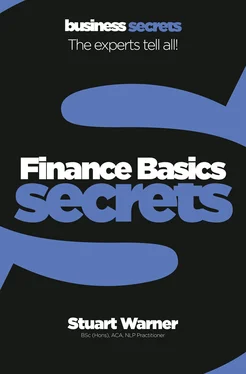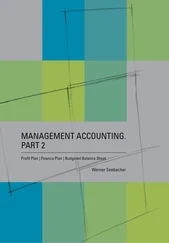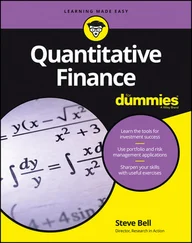Stuart Warner - Finance Basics
Здесь есть возможность читать онлайн «Stuart Warner - Finance Basics» — ознакомительный отрывок электронной книги совершенно бесплатно, а после прочтения отрывка купить полную версию. В некоторых случаях можно слушать аудио, скачать через торрент в формате fb2 и присутствует краткое содержание. Жанр: unrecognised, на английском языке. Описание произведения, (предисловие) а так же отзывы посетителей доступны на портале библиотеки ЛибКат.
- Название:Finance Basics
- Автор:
- Жанр:
- Год:неизвестен
- ISBN:нет данных
- Рейтинг книги:3 / 5. Голосов: 1
-
Избранное:Добавить в избранное
- Отзывы:
-
Ваша оценка:
- 60
- 1
- 2
- 3
- 4
- 5
Finance Basics: краткое содержание, описание и аннотация
Предлагаем к чтению аннотацию, описание, краткое содержание или предисловие (зависит от того, что написал сам автор книги «Finance Basics»). Если вы не нашли необходимую информацию о книге — напишите в комментариях, мы постараемся отыскать её.
Finance Basics — читать онлайн ознакомительный отрывок
Ниже представлен текст книги, разбитый по страницам. Система сохранения места последней прочитанной страницы, позволяет с удобством читать онлайн бесплатно книгу «Finance Basics», без необходимости каждый раз заново искать на чём Вы остановились. Поставьте закладку, и сможете в любой момент перейти на страницу, на которой закончили чтение.
Интервал:
Закладка:
Finance Basics
Secrets
The experts tell all!
Stuart Warner

Table of Contents
Cover Page
Title Page Finance Basics Secrets The experts tell all!
Financial awareness is fundamental to business success
Introducing business finance
1.1 Know the different business entities
1.2 Find out how a business gets money
1.3 Find out how a business uses money
1.4 Appreciate the need for record-keeping
1.5 Know what a finance department does
1.6 Understand the key financial systems
1.7 Differentiate financial and management accounting
Accounting fundamentals
2.1 Make sense of the jargon
2.2 Discover why timing is essential
2.3 Know about doubleentry bookkeeping
2.4 See how accounting systems work
2.5 Understand the balance sheet
2.6 Understand the income statement
2.7 Understand the statement of cash flows
2.8 Watch out for non-cash costs
2.9 Be aware of accounting regulation
2.10 Know who uses financial statements
Making profit
3.1 Realize that not all ‘costs’ are the same
3.2 Know what is meant by ‘profit’
3.3 Differentiate mark-ups and margins
3.4 Consider the impact of discounting
3.5 Forecast costs, volumes and profit
3.6 Know when to use CVP analysis
3.7 Know how to manage profitability
3.8 Be aware of tax
Managing cash
4.1 Understand why cash is king
4.2 Avoid the overtrading trap
4.3 Understand the cash operating cycle
4.4 Measure the cash operating cycle
4.5 Improve cash flow – 1
4.6 Improve cash flow – 2
4.7 Collect cash from customers
4.8 Prepare regular cash flow forecasts
Budgeting
5.1 Understand budgets
5.2 Follow the steps forpreparing budgets
5.3 Choose the best way to budget
5.4 Understand participative budgeting
5.5 Calculate variances from budget
5.6 Monitor budgets effectively
Evaluating business opportunities
6.1 Focus on the relevant costs
6.2 Work out if an opportunity pays back
6.3 Calculate return on investment
6.4 Understand the time value of money
6.5 Use NPV and IRR toappraise investments
Measuring business performance
7.1 Evaluate a business using ratios
7.2 Measure profitability
7.3 Measure short-term solvency and liquidity
7.4 Measure long-term solvency and stability
7.5 Calculate investor ratios
7.6 Estimate the value of a business
Jargon buster
Further reading
About The Author
Copyright
About the Publisher
Financial awareness is fundamental to business success
Many business people, professionals and senior executives who may be experts in their field are sometimes less confident in finance. Quite often this is unfounded and can easily be overcome. In the business world the ability to understand finance and communicate financially is essential.
To date, I’ve spent almost two decades working in finance. I’ve spent a large proportion of this time teaching others. Early on, I found that learning finance was akin to learning a language. One of my own finance teachers told me, “It’s not the numbers, it’s the English you’ll find hard!” – and my own experience proves that this is certainly true. Accountants will often use several names for the same thing. Where possible I’ve tried to give alternative explanations when introducing a financial term. The Jargon Buster at the back of the book should also help you get to grips with some key financial terminology.
In this book I’ve picked 50 secretsthat will help you get to grips with finance basics. I’ve divided the secretsinto seven chapters which cover seven crucial areas every business person should understand.
Introducing business finance.Business owners, managers and employees need to have a basic level of financial awareness to help a business succeed.
Accounting fundamentals.Make sure you know basic financial terminology and concepts. Be familiar with the main financial statements produced by a business.
Making profit.Profit is the raison d’être for most businesses. Knowing how to make and increase profit is one of the key ingredients for business success.
Managing cash.“Profit is sanity but cash is reality.” Without cash a business cannot survive for long. Effective cash management will help a business to endure.
Budgeting.Many businessess invest considerable time in budgeting but few do it successfully. Some practical tips can improve the process.
Evaluating business opportunities.Businesses should use established techniques to help decide whether or not to commit time, resources and money on investment opportunities.
Measuring business performance.A successful business can be judged by the size of its market value. Its performance can be measured by using financial ratios.
From students who are interested in business finance to chief executives who want to know more, this book can help you get to grips with finance basics. You’ll even find it interesting and it can help you with your future business activities.
Financial knowledge is not just for accountants – it’s for everyone!
Introducing business finance
Owners, managers and employees need to be aware of the financial consequences of running their business. In this chapter I’ll explain the different types of business entities. I will show you where a business gets its money from and what it does with it. You’ll appreciate the need to record, analyse and summarize business transactions. I’ll also explain the essential difference between financial accountants and management accountants.
1.1 Know the different business entities
A useful starting point to understanding business finance is to appreciate the different ways of trading. There are three main categories: sole traders, partnerships and limited companies. Each offers advantages and disadvantages in relation to legal issues, taxation and the personal liability of its owners.
1 Sole traders.A sole trader or proprietorship is a business with 1 one owner, who has unlimited personal liability. If the business becomes insolvent, the proprietor is personally liable for any unpaid debts. Examples can include shopkeepers, tradesmen (e.g. electricians), hairdressers and florists.
2 Partnerships.A partnership is a business with multiple owners, who share profits or losses. The partners can share unlimited personal liability or can take limited liability status. Examples tend to include doctors, dentists, lawyers and accountants.
“A friendship founded on business is better than a business founded on friendship” John D. Rockefeller, industrialist
3 Limited companies.A limited company is a business incorporated by law. Its owners are ‘shareholders’ who have the benefit of limited liability. If the business becomes insolvent the shareholders are only liable for the amount they invested in the company. Limited liability is a key advantage of turning a business into a limited company and can help to attract potential investors. In practice, however, banks may require personal guarantees from shareholders of small owner-managed businesses for loans or overdrafts. There is also an increased administrative and financial burden, in comparison to sole traders.
Читать дальшеИнтервал:
Закладка:
Похожие книги на «Finance Basics»
Представляем Вашему вниманию похожие книги на «Finance Basics» списком для выбора. Мы отобрали схожую по названию и смыслу литературу в надежде предоставить читателям больше вариантов отыскать новые, интересные, ещё непрочитанные произведения.
Обсуждение, отзывы о книге «Finance Basics» и просто собственные мнения читателей. Оставьте ваши комментарии, напишите, что Вы думаете о произведении, его смысле или главных героях. Укажите что конкретно понравилось, а что нет, и почему Вы так считаете.












